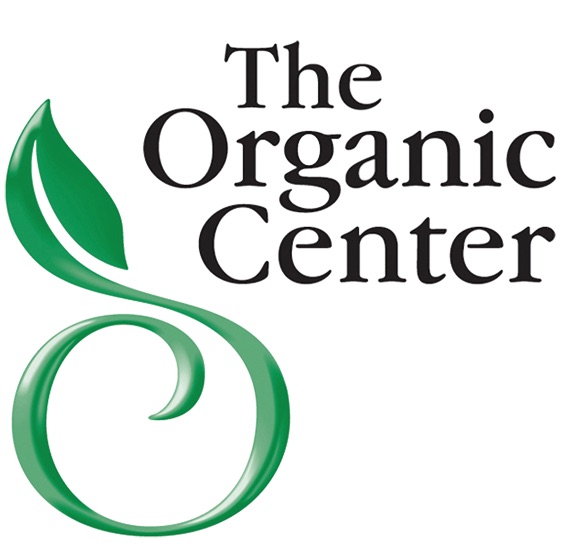
If you care about organic, then you MUST visit the Rodale Institute
This past weekend, I was in Pennsylvania for a farm tour and to attend the 7th annual Organic Pioneer Awards dinner at the Rodale Institute. In all of my years covering the organic industry, this was one of the most special days that I have experienced.
With its 333 acres of picturesque farmland, Rodale Institute is where the organic food movement began in our country, 70 years ago. In 1947, J.I. Rodale had the vision to establish this farm and research center, and it continues to do some of the most critical work in our industry today.
These are the five most important initiatives taking place at Rodale:
1) The Farming Systems Trial (FST) is a 38-year study which compares organic grains vs. conventional/GMO grains.
Despite the fact that the GMO-industry tries to convince everyone that its yields are superior, this is, in fact, not the case. Over a long period of time, FST has found that there is no difference in yields. Furthermore, in times of drought, organic yields are 31% higher than conventional.
2) Recently launched, the Vegetable Systems Trial (VST) will be conducting a long-term study of organic vegetables and conventional vegetables. It will analyze nutrient density, soil quality, energy inputs and profitability.
While most studies simply take organic and conventional vegetables off of the shelf and do an analysis, VST will be growing both types of vegetables and doing a side-by-side comparison.
3) Also recently launched, the Industrial Hemp Project may prove to be Rodale’s most important research study ever.
Less than 10% of the farms in the U.S. plant cover crops, largely because they do not have value in the marketplace. However, hemp does have value in the marketplace.
So, not only could farmers be planting a cover crop that brings in revenue, but these hemp cover crops help sequester carbon and put nutrients back into the soil.
Furthermore, hemp grows so quickly that it shades out weeds and acts as a weed suppressant. If weeds are reduced, this would also decrease the amount of synthetic chemicals that conventional farmers use.
Rodale Institute planted hemp in June and harvested them in August, and within two months, the crops were already 12 feet tall! This is all with no fertilizer or pesticides.
Rodale is only 1 of 16 sites in Pennsylvania to get a permit this year to grow hemp, the first time that it could legally plant hemp in nearly 80 years.
4) This is the one-year anniversary of the Organic Farmers Association, an organization that I have written about in previous Organic Insider newsletters, and it just hired its first Washington, D.C. lobbyist, Mark Rokala, who has a background in sustainable agriculture.
5) The Regenerative Organic Certification, which will be led by Rodale Institute, was just formalized and will be introduced this week at Natural Products Expo East in Baltimore. (See below for more details.)
In future newsletters, I will go into more depth as to why this certification is vitally important. In short, it will not only help protect organic, particularly if the USDA continues to drag its feet on matters such as allowing hydroponics in organic, but the certification will also help to raise the bar for organic.
—
Fortunately, the Rodale Institute realizes that it must do more than just focus on organic farming.
That is why it is developing studies which aim to prove that regenerative organic agricultural practices not only lead to improved soil health but also to improved human health. If we can get to that point, the conversation completely changes.
Please go visit the Rodale Institute in Pennsylvania as soon as you can. It is an incredibly special place, and for those of us who care deeply about organic, it is our home.
Rodale is open to the public and hosts farm tours, events, apple festivals, and workshops year-round. Feel free to get in touch with Maria Pop (maria.pop@rodaleinstitute.org), Education Outreach Manager, for more information.
In closing, I want to send big congratulations to the three recipients of this year’s Organic Pioneer Awards — Tom Beddard of Lady Moon Farms, Yvon Chouinard of Patagonia, and Dr. Kathleen Delate of Iowa State University. They are true leaders in our industry. And huge thanks to Dr. Bronner’s, who has donated $100,000 to the Rodale Institute this year.

(Farmhouses at the Rodale Institute.)

(Where the Farming Systems Trial is being conducted.)

(Ross Duffield, Farm Manager, surrounded by hemp plants at Rodale.)

(Maria Rodale, Chairman and CEO of Rodale Inc.)
 |
Have a great day! 
Max Goldberg, Founder |
Quick Hits
* In last week’s Organic Insider, I discussed how the Center for Food Safety sued the USDA for not releasing the feasibility study regarding QR codes. This was mandated by Congress as part of the GMO-labeling bill that it passed last summer.
* As a result of the lawsuit, the USDA released the study, which supported the Center for Food Safety’s claims that QR codes are discriminatory. Read more about the study here.
* Just this morning, the Organic Trade Association, which has the reputation of not wanting to ruffle the feathers of the government, sued the USDA for failing to put into effect the Organic Animal Welfare Standards.
* To have these two lawsuits against the USDA within the first 10 months of the Trump administration is a very, very ominous sign. Behind the scenes at the USDA, there must be an all-out assault on organic, which is not entirely unexpected.
* At Natural Products Expo East this week in Baltimore, there are many great events and panel discussions. Here are a few that I am looking forward to attending:
* – Today at 6pm, there is a documentary at the Hilton about homeopathy called Just One Drop.
* – Thursday at 11:30am in room #316 in the convention center, there will be a preview of the fall NOSB meeting. We need as many people as possible to show up and tell the panel that hydroponics and all container growing systems should be banned from organic.
* – Thursday at noon in room #317 in the convention center, there is a panel discussion Retail Innovation in Organic: Finding Opportunity in a Growing, Fractured Marketplace.
* – Friday at 4:30pm at the Dr. Bronner’s booth (#2419), in conjunction with Rodale, Patagonia, and OSC2, there will be a Regenerative Organic Agriculture Cocktail Hour announcing the new Regenerative Organic Certification (ROC). To read the recommended framework of the ROC and to comment on it, you can do so here.
* – The Emerging Biodynamic Marketplace is taking place on Friday at 4pm and on Saturday at 8:30am & 1pm in Room 332 at the convention center. There will be a discussion about Biodynamic and also a product showcase.
* Yesterday, Politico reported that Miles McEvoy, who oversees the National Organic Program at the USDA, is stepping down at the end of this month. Until USDA Secretary Sonny Perdue picks McEvoy’s replacement, Agricultural Marketing Service acting Administrator Bruce Summers and acting Deputy Administrator Jenny Tucker will oversee the program.
* On Living Maxwell, I interviewed Hollywood actress Jennifer Garner and former Annie’s president John Foraker, as they announced their move to organic baby food company Once Upon a Farm.
* Both will become co-founders while John will be CEO and Jennifer will be Chief Brand Officer. They will be joining other co-founders Cassandra Curtis and Ari Raz.
* Congrats to Greg Fleishman, Once Upon a Farm board member and Co-Founder of Foodstirs, for helping to make this deal happen.
Weekly News Summaries


STUDY: Organic Farming is Superior for Sequestering Carbon
A groundbreaking new study by The National Soil Project at Northeastern University, in collaboration with the Organic Center, shows that soils on organic farms store away appreciably larger amounts of carbons – and for longer periods of time — than typical agricultural soils.

Sales of Organic Fruit in the U.S. Grew by 12%
In the 2nd quarter of 2017, sales of organic fruit in U.S. grew by 12% while the organic berry category surged by nearly 15%.

Whole Foods' Private Label Sells $500,000 of Product in One Week
By Elaine Watson
In its first week of being owned by Amazon, Whole Foods sold nearly $500,000 of its private label product. However, the company ran into inventory problems because it underestimated demand.
Kroger Goes on Offense, Slashes Prices
By Heather Haddon
In order to show that it can compete with Amazon-owned Whole Foods, Kroger has made major price cuts, invested more in technology, and added meal kit options to some of its stores.

With its Herbicide Dicamba, Monsanto has Devastated Thousands of Farms in 20 States
By Bill Freese
Over 2,200 farmers in 20 states have reported crop damage of three million acres, all caused by Monsanto's super-toxic herbicide dicamba.


Unilever buys Organic Tea Company Pukka Herbs
By Sarah Butler
For an undisclosed sum, Pukka Herbs has been purchased by Unilver. Pukka Herbs did approximately $30 million in revenues last year.

Very Careful Planning Helped Amy's Grow to a $500M Business
By Will Yakowicz
Inspiring profile of Rachel and Andy Berliner and how they carefully and methodically built Amy's into a $500 million-dollar business.

Thrive Market to Introduce Nut Milks and Breakfast Options
By Danica Lo
With a real focus on expanding its private-label breakfast options, Thrive Market will be introducing plant-based nut milks, cereals and granola.

How Maple Hill Creamery Became a Grass-Fed Organic Dairy Leader
By Elliot Begoun
Starting off with 63 cows in 2004, Maple Hill Creamery now has its 100% grass-fed organic products in more than 6,000 stores.
The material in this newsletter is copyrighted and may be reprinted by permission only. All requests must be in writing. Please use our contact form to request republication rights.
Newsletter Archive
Quick Hits
* In last week’s Organic Insider, I discussed how the Center for Food Safety sued the USDA for not releasing the feasibility study regarding QR codes. This was mandated by Congress as part of the GMO-labeling bill that it passed last summer.
* As a result of the lawsuit, the USDA released the study, which supported the Center for Food Safety’s claims that QR codes are discriminatory. Read more about the study here.
* Just this morning, the Organic Trade Association, which has the reputation of not wanting to ruffle the feathers of the government, sued the USDA for failing to put into effect the Organic Animal Welfare Standards.
* To have these two lawsuits against the USDA within the first 10 months of the Trump administration is a very, very ominous sign. Behind the scenes at the USDA, there must be an all-out assault on organic, which is not entirely unexpected.
* At Natural Products Expo East this week in Baltimore, there are many great events and panel discussions. Here are a few that I am looking forward to attending:
* – Today at 6pm, there is a documentary at the Hilton about homeopathy called Just One Drop.
* – Thursday at 11:30am in room #316 in the convention center, there will be a preview of the fall NOSB meeting. We need as many people as possible to show up and tell the panel that hydroponics and all container growing systems should be banned from organic.
* – Thursday at noon in room #317 in the convention center, there is a panel discussion Retail Innovation in Organic: Finding Opportunity in a Growing, Fractured Marketplace.
* – Friday at 4:30pm at the Dr. Bronner’s booth (#2419), in conjunction with Rodale, Patagonia, and OSC2, there will be a Regenerative Organic Agriculture Cocktail Hour announcing the new Regenerative Organic Certification (ROC). To read the recommended framework of the ROC and to comment on it, you can do so here.
* – The Emerging Biodynamic Marketplace is taking place on Friday at 4pm and on Saturday at 8:30am & 1pm in Room 332 at the convention center. There will be a discussion about Biodynamic and also a product showcase.
* Yesterday, Politico reported that Miles McEvoy, who oversees the National Organic Program at the USDA, is stepping down at the end of this month. Until USDA Secretary Sonny Perdue picks McEvoy’s replacement, Agricultural Marketing Service acting Administrator Bruce Summers and acting Deputy Administrator Jenny Tucker will oversee the program.
* On Living Maxwell, I interviewed Hollywood actress Jennifer Garner and former Annie’s president John Foraker, as they announced their move to organic baby food company Once Upon a Farm.
* Both will become co-founders while John will be CEO and Jennifer will be Chief Brand Officer. They will be joining other co-founders Cassandra Curtis and Ari Raz.
* Congrats to Greg Fleishman, Once Upon a Farm board member and Co-Founder of Foodstirs, for helping to make this deal happen.
